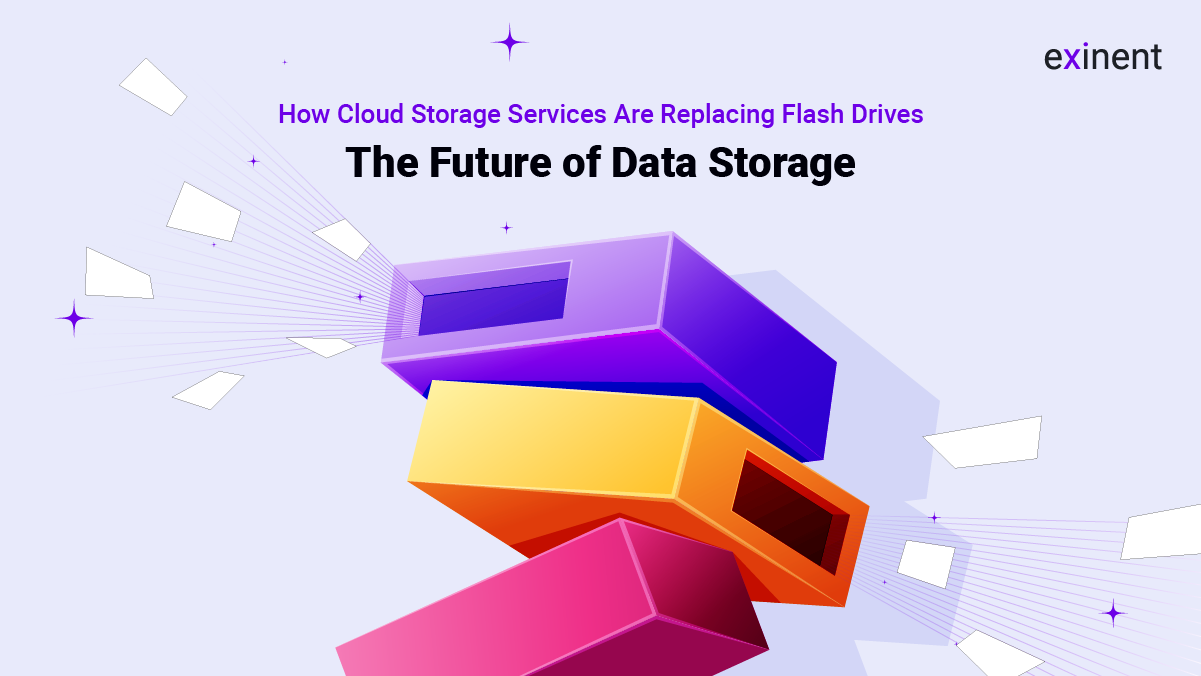
In today’s fast-evolving digital landscape, cloud storage services have rapidly taken center stage, providing a more flexible, scalable, and secure way of storing and accessing data. The traditional flash drive, once a go-to for personal and business data storage, is gradually being pushed to the sidelines. With the ever-growing need for businesses and individuals to access data from anywhere, the rise of cloud storage marks a shift towards a more convenient and efficient system of managing information.
In this blog, we will dive deep into how cloud storage services are replacing flash drives, explore the benefits and limitations of both technologies, and examine why more people and businesses are opting for cloud solutions.
The Rise of Flash Drives
Flash drives, also known as USB sticks or thumb drives, revolutionized data storage in the early 2000s. These portable devices made it easy to store files, transfer data between computers, and take information on the go. People have been using cheap USB sticks for a while. They were compact, easy to use, and could store gigabytes of data, making them incredibly popular for personal and business use alike.
Despite their advantages, flash drives had several limitations:
- Capacity limits: Although early flash drives offered ample space compared to floppy disks, they are relatively limited in capacity compared to modern storage options.
- Data security risks: Flash drives are small and easily lost or stolen, making them a security risk for sensitive information.
- Durability: Low priced USB sticks although they are portable yet can be damaged or corrupted, resulting in data loss.
As data needs grew, so did the demand for more robust and scalable storage solutions—and this is where cloud storage services stepped in.
The Emergence of Cloud Storage
Cloud storage first gained popularity as businesses began to move from on-premises hardware to the cloud. Platforms like Google Drive, Dropbox, Microsoft OneDrive, and Amazon Web Services (AWS) provide users with the ability to store data remotely on secure servers that can be accessed from any location with an internet connection.
Key reasons for the growing adoption of cloud storage services include:
- Unlimited scalability: Unlike flash drives, which have a finite amount of space, cloud services can scale to accommodate vast amounts of data. Businesses, in particular, benefit from the ability to increase or decrease storage capacity based on their needs.
- Anywhere, anytime access: Data stored in the cloud can be accessed from any device with an internet connection. This feature is invaluable in today’s remote work environment, where collaboration and access to data across multiple locations are essential.
- Data backup and recovery: Cloud providers typically offer built-in backup and recovery options, ensuring that data is safe even in the event of a hardware failure or accidental deletion.
- Data security: Leading cloud providers invest heavily in security measures such as encryption, multi-factor authentication, and continuous monitoring to safeguard data against cyber threats.
Cloud Storage vs. Flash Drives: A Comparative Overview
In an era where data is more valuable than ever, the way we store, access, and manage that data has seen a dramatic shift. Flash drives, once a revolutionary tool for portable data storage, are being steadily overshadowed by the rise of cloud storage services. With the growing demands for accessibility, security, and scalability, individuals and businesses are increasingly turning to cloud solutions. But what exactly sets cloud storage apart from flash drives? In this comparative overview, we’ll explore the key differences between these two storage options, examining factors like capacity, security, convenience, and cost to understand why more people are making the move to the cloud.
- Storage Capacity and Scalability
One of the key differences between cloud storage and inexpensive flash drives is the scalability. Flash drives are limited by physical storage capacity, which ranges from a few GBs to several TBs in more advanced models. However, this capacity is static, and once the drive is full, users must either delete files or purchase a new device.
In contrast, cloud storage offers virtually unlimited capacity, allowing users to expand their storage needs as required without having to invest in new hardware. - Accessibility and Convenience
Flash drives require a physical connection to a computer or device to access stored files, whereas cloud storage services allow users to access files remotely from any device with an internet connection. This accessibility makes cloud services much more convenient for collaboration and remote work. - Security Concerns
Security is a growing concern for both flash drive and cloud storage users. Flash drives are easily misplaced or stolen, and data on them can be accessed by anyone who finds them. They can also be infected by malware if used on compromised devices.
In contrast, cloud providers offer a higher level of security, with end-to-end encryption, multi-factor authentication, and robust backup systems in place to protect data from unauthorized access and loss. However, some users still express concerns about storing sensitive information on external servers, citing potential data breaches or unauthorized access by cloud providers themselves. - Durability and Data Loss
One of the significant disadvantages of flash drives is their susceptibility to physical damage. Drives can easily be damaged by water, excessive heat, or accidental bending. Once a flash drive is damaged, data retrieval may be difficult or impossible.
Cloud storage services eliminate this concern since data is stored remotely on servers that are maintained and backed up by the provider. The risk of data loss is significantly reduced in a cloud environment, where redundancy is built into the storage infrastructure. - Cost
Flash drives offer a one-time payment for a fixed amount of storage space. On the other hand, cloud storage services often operate on a subscription model, where users pay monthly or annually based on the amount of storage they need. While this might seem costly over time, the added benefits of data protection, accessibility, and scalability make cloud storage a more valuable investment for both individuals and businesses.
Why is Cloud Storage Preferred Over Flash Drives?
There are numerous scenarios where cloud storage services outperform flash drives, including:
- Collaboration: Cloud platforms allow multiple users to access, edit, and share files in real time, regardless of their physical location. This is not possible with flash drives, which require files to be manually transferred between users.
- Remote Work: In today’s world, remote work has become the norm. Cloud storage enables employees to access their files and documents from home, ensuring business continuity.
- File Synchronization: Cloud services offer seamless file synchronization across multiple devices, ensuring that users always have access to the most up-to-date version of their files.
- Environmental Impact: Using cloud storage reduces the production of physical flash drives, which often end up as electronic waste. Cloud services are a more sustainable option for the environment.
The Future of Data Storage
As businesses and individuals continue to shift towards digital solutions, cloud storage will only grow in importance. The potential for advanced data analytics, artificial intelligence, and the Internet of Things (IoT) means that data storage requirements will continue to increase. Cloud services are better equipped to handle these evolving needs than physical storage devices like flash drives.
With 5G networks and faster internet speeds becoming widespread, accessing and storing large amounts of data in the cloud will become even easier, further diminishing the role of physical storage devices. Cloud providers are also continuously improving their services to offer better encryption, privacy controls, and faster retrieval times.
Conclusion
The shift from flash drives to cloud storage services is a natural progression in the ever-evolving landscape of technology. With enhanced security, scalability, accessibility, and environmental benefits, it’s no surprise that more businesses and individuals are opting for cloud solutions. While flash drives may still have their niche uses, the future of data storage clearly lies in the cloud.
If you’re ready to enhance your business’s data management with a reliable cloud solution, contact Exinent’s cloud migration services to make the seamless transition to the cloud. We offer secure, scalable, and customizable solutions tailored to your needs.
